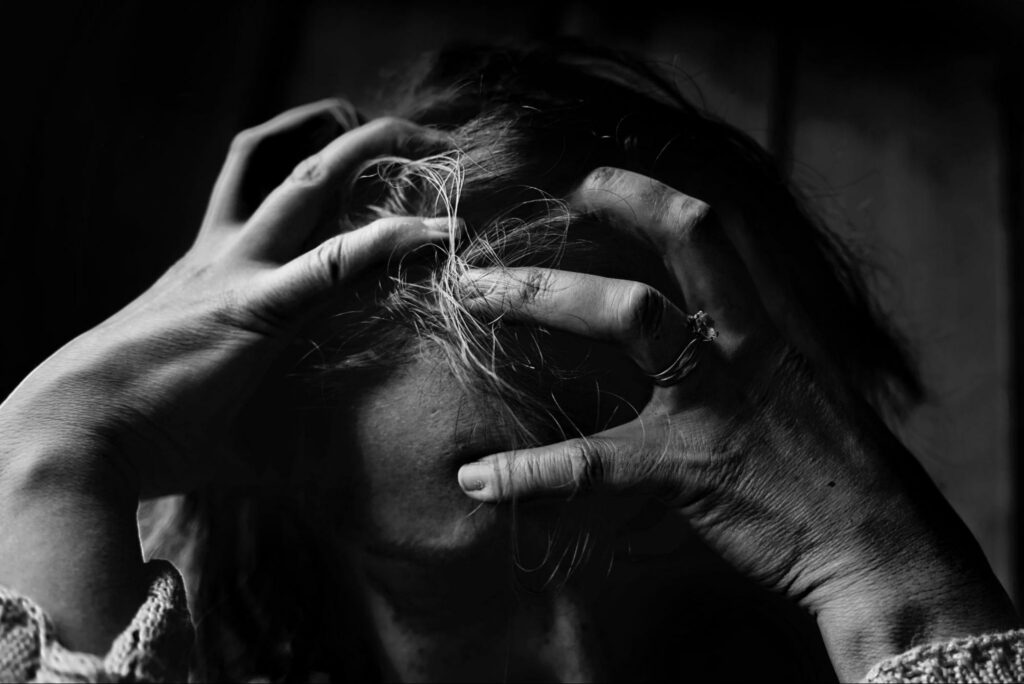Article At Glance:
- Emotional trauma can affect anyone, regardless of background or age.
- Emotional Trauma is a result of a stressful event.
- Supporting a loved one through trauma involves patience and understanding of their recovery needs.
Welcome to sadness
The temperature is unbearable until you face it
Thank you for flying with Strange Airlines
I will be your tour guide today*

Trauma has been described as the great equalizer. Trauma knows no bounds. Trauma can happen to anyone, no matter their race, gender, or age.
What Is Emotional Trauma?
Dr. Gabor Maté, M.D. states that “trauma is a psychic wound that hardens you psychologically that then interferes with your ability to grow and develop. It pains you and now you’re acting out of pain. It induces fear and now you’re acting out of fear. Trauma is not what happens to you, it’s what happens inside you as a result of what happened to you. Trauma is the scarring that makes you less flexible, more rigid, less feeling, and more defended.”
In other words, trauma is the lasting symptom of a stressful event. It is a healthy response to a stressful event that disrupts our sense of self and shatters our sense of security.
Causes Of Emotional Trauma
Please note that these examples are not the only examples of trauma.
- Abuse: physical, emotional/verbal, financial, mental/psychological, cultural/identity, stalking, digital, social, and spiritual.
- One-time event: car accident, injury, sexual assault, attack, witnessing a death, natural disasters.
- Repeated exposure: childhood neglect, intimate partner violence, long-term illness, living in a war zone, experiencing political and racial violence, experiencing a global pandemic.
- Events we don’t really think about initially: the sudden death of a loved one, bullying, divorce, breakup.

Signs And Symptoms Of Emotional Trauma
Please note that these are just some of the symptoms.
(1) Cognitive Signs
- Flashbacks
- Nightmares
- Depression
- Dissociation
- Feeling that you are disconnected from your thoughts, feelings, memories, and surroundings (Derealization). For example, you may experience a disconnect from your sense of identity or your perception of time, or an out-of-body experience (Depersonalization).
- Loss of memory/confusion
- Intrusive thoughts

(2) Behavioral Signs
- Isolation/withdrawal
- Self-harm
- Anhedonia (the inability to feel pleasure)
- Avoiding of person/places/activities that are associated with the traumatic event(s)
- Avoidance of distressing memories/thoughts/or feelings about or closely associated with the traumatic event(s)

(3) Physical Signs
- Chronic pain
- Tachycardia (increased heart rate)
- Hypo/hypersomnia
- Hypervigilance
- Changes in diet

(4) Emotional/Psychological Signs
- Anxiety
- Depression
- Shame
- Guilt
- Mood swings
- Substance use/abuse
- Panic attacks
- Anger/irritability
- Suicidal ideation
- Perfectionism
- People-pleasing

How To Support A Loved One On Their Journey To Recovery After Emotional Trauma
- Listen to understand, not to “fix”
- Allow them to set the pace
- Offer practical support
- For example: helping with groceries, chores, and errands.
- Invite them out/over
- For example Movie nights, exercise classes, cooking/baking, arts and crafts
- Don’t take it personally
- As we learned earlier, trauma survivors can experience mood swings. Please keep in mind that your loved one’s mood swings are not related to your relationship, but are a response to the event(s) that they survived.
- Take care of yourself, you are not their therapist
- Make sure that you are taking care of yourself. Either by engaging in some of the activities listed in the How to Heal from Emotional Trauma section or by scheduling an appointment for your own individual counseling.

Your emotional baggage can be picked up at carousel number 2
Please be careful so that it doesn’t fall onto someone you love
When we’ve reached your final destination
I will leave you to it
You’ll be fine
I’m just gonna show you in
And you can stay as long as you need
To get familiar with the feeling
And then when you’re ready, I’ll be outside
And we can go look at the sunrise
By euphoria mixed with existential vertigo?
Cool*
*from Secrets From a Girl (Who’s Seen It All), Lyrics by Lorde


